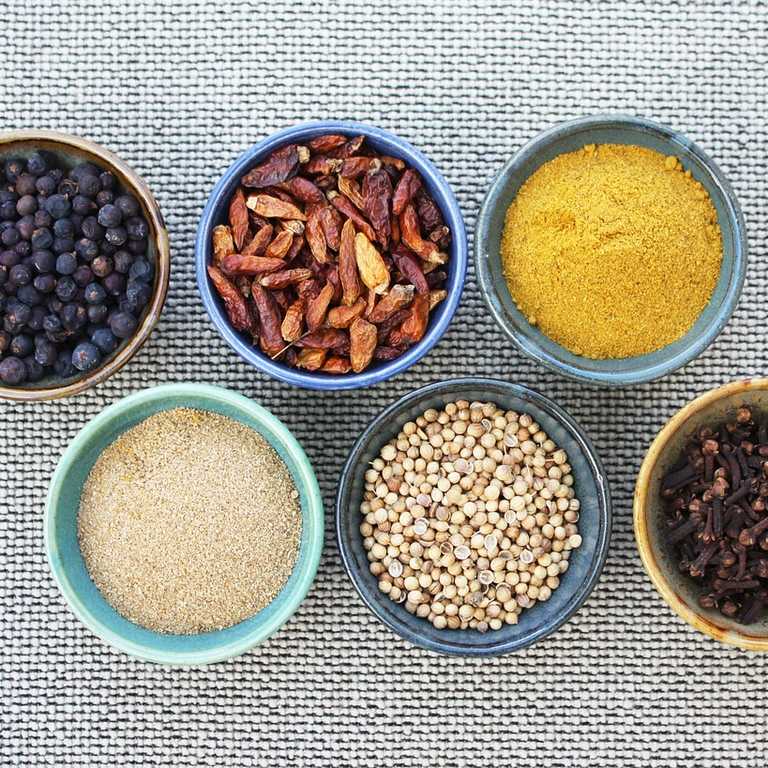Table of Content
Ensuring The Ground Spices Are Safe To Consume

India- The Home of Spices, is a global spice market leader and caters to 48 percent of the world over demands. Spices play an important role in Indian cuisine and no meal is complete without them. Spices are consumed in various forms like whole spice, ground spices, extracts, oleoresins, etc. They play an important role in enhancing flavor and taste of Indian food. Spices are also used in Indian medicines for their carminative and digestive properties.
Spices hold economically high value and hence are prone to adulteration for illegal monetary gains. This is especially the case when loose spices are purchased from the local market which increases the risk of consuming adulterated spices. Ground spices maybe adulterated with artificial colors, chalk powder, starch, etc. to increase their weight and enhance appearance.
Table 1: Common adulteration in ground spices
| S. No. | Spice | Adulteration |
| 1 | Black Pepper Powder | Addition of papaya seeds, starch and sawdust |
| 2 | Turmeric powder | Addition of lead chromate, metanil yellow, chalk powder or yellow soap stone powder and starch; substitution with other rhizomes e.g. arrow root etc. |
| 3 | Chillies powder | Addition of brick powder, salt powder or talc powder, artificial colours and dyes, colour, grit, sand, dirt, filth, saw dust, dried tomato skin |
| 4 | Asafoetida (Hing) | Addition of soap stone or other earthy material, starch, foreign resin |
| 5 | Coriander powder | Addition of animal dung powder, seed removed coriander |
| 6 | Oregano | Addition of other similar herbs and plant leaves |
| 7 | Curry Powder | Addition of starch powder and sawdust |
| 8 | Cinnamon | Substitution with Cassia |
| 9 | Cumin | Addition of grass seeds coloured with charcoal, immature fennel |
| 10 | Saffron | Addition of coloured dried tendrils of maize cob, Sandalwood dust, Tartrazine, Coconut threads |
| 11 | Cardamom | Substitution with de-oiled cardamom, artificial colourant (e.g. ‘apple green’, malachite green). |
Consuming adulterated spices can cause various diseases like skin allergies, ulcer, liver disorder, stomach and intestinal disorders, kidney stones, eye disease, food poisoning, neurotoxicity, cancer, etc.
Adulteration in spices is difficult to identify by only visual and sensory inputs. However, you can check adulteration in ground spices can at home by using simple test methods listed in Detect Adulteration with Rapid Test (DART) booklet. The booklet is prepared by FSSAI. It is a compilation of common quick tests for detection of food adulterants at household level by citizens themselves.
Prevention
The best way to avoid adulterated spices and related health hazards is prevention. There are many steps we can take to ensure this, few of them are listed below:
- Avoid buying powdered spices sold loose.
- Buy spices in packaged condition from trusted brands only. Prefer purchasing AGMARK certified ground spices and look for AGMARK logo.
- Check the FSSAI license number on the package label.
- Purchase whole spices from known/reputed stores/dealers and grind it at home after proper cleaning and washing. Chances of adulteration in whole spices are generally low as compared to ground spices as it can be visually identified.
- Do not buy spices with extra shine and bright colours as they are more likely to be adulterated.
- Never purchase ground spices having lump formation or unpleasant odour.
- Always read the manufacturing date, manufacturer details, best before date and other labelling declarations before buying spices.
- Never buy ground spices if the package is damaged.
- Look for FSSAI organic logo (Jaivik Bharat) on the pack while buying organic spices.

FSSAI Regulations
Standards of 31 Spices and Condiments (whole and ground] are prescribed under sub regulation 2.9 “Salt, Spices, Condiments and related Products” of Food Safety & Standards (Food Products Standards and Food Additives], Regulations 2011. The Sub Regulation “2.3.14: Restrictions Relating to Conditions for Sale” of Food Safety and Standards (Prohibition and Restrictions on Sales] Regulations, 2011, states that powdered spices and condiments can only be sold under “packed condition”. It prohibits the sale of powdered spices and condiments in loose form. This regulation also restricts the sale of compounded asafetida exceeding one kilogram in weight except in a sealed container with proper labelling. These regulations are available on FSSAI website. There are provisions of penalties for persons who manufacture for sale, or store, or sell, or distribute adulterated spices.
References:
- FSSAI Guidance Note No.: 02/2018. SAFE GROUND SPICES. How to Ensure That They Are Not Adulterated. Dated- 30 July 2018
- Food Safety and Standards (Prohibition and Restrictions on Sale] Regulation 2011.
- Quick test for some adulterant in Food: Instruction manual part II (Methods for detection of adulterants], Food Safety and Standards Authority of India.
Enquire Now
To enquire about our services please complete the form below and we will be in tough with you as soon as possible
Food Regulatory Services
- Consumer Product
- Compliance Services
- Licenses